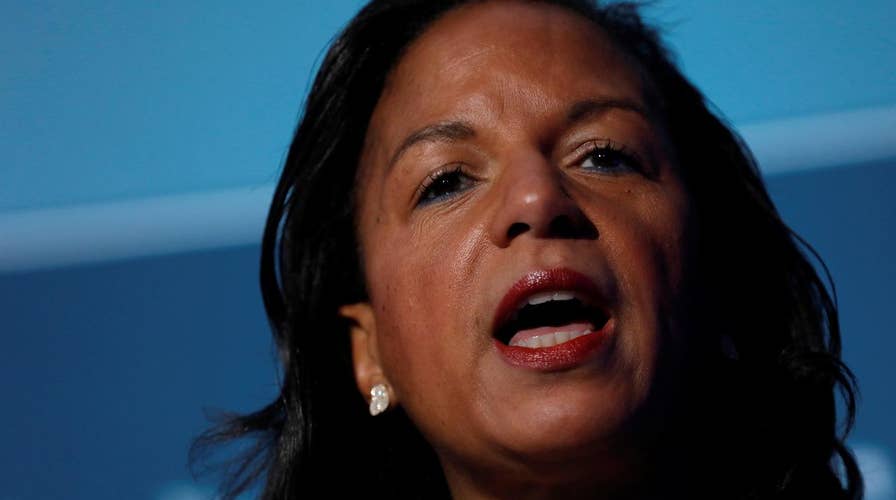When former national security adviser Susan Rice was named to the Netflix board of directors Wednesday, she became at least the third high-ranking official under former President Barack Obama to receive a top post at a tech giant after leaving the White House.
In announcing Rice's appointment, Netflix co-founder and CEO Reed Hastings said the former U.S. ambassador to the U.N. had "tackled difficult, complex global issues with intelligence, integrity and insight."
Rice's appointment was met with outrage from some conservatives. Judicial Watch President Tom Fitton said Netflix had "[doubled] down in support of Obama corruption" by hiring Rice, a controversial figure in the aftermath of the 2012 Benghazi attack, as well as the "unmasking" controversy surrounding members of the Trump campaign.
National Rifle Association spokesman Dana Loesch said Netflix was "[t]he perfect place for a former staffer who blamed a terror attack on a poorly-made short film released long before said attack took place," a reference to Rice initially blaming the Benghazi attack on an anti-Muslim YouTube video.
But Rice isn't the only Obama alum benefiting here. David Plouffe, a former senior adviser to Obama, was hired by ridesharing company Uber in August 2014 to be its senior vice president of policy and strategy. This past January, Plouffe was lured away from Uber by Facebook founder and CEO Mark Zuckerberg to help run his Chan Zuckerberg social advocacy organization.
Former White House press secretary Jay Carney has settled down at another titan, Amazon. Carney, who departed the West Wing in June 2014 and spent six months as a political analyst at CNN, joined Amazon in March 2015 as senior vice president for corporate affairs.
Amazon is a particular thorn in the side of President Trump, who attacked the company on Twitter Thursday for "[paying] little or no taxes to state & local governments, [using] our Postal System as their Delivery Boy (causing tremendous loss to the U.S.), and ... putting many thousands of retailers out of business!"
Conservatives have long criticized tech companies for disregarding and shunning their viewpoints. During a recent debate at Stanford University, PayPal co-founder Peter Thiel described Silicon Valley as "a one-party state."
"The other side doesn’t care for you," Thiel said, "and your side doesn’t care for you because they don’t need to."













































